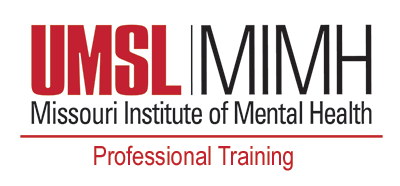Assessing and Managing Suicide Risk: Core Competencies for Mental Health Professionals
Pre-Conference Workshop
A Pre-Conference workshop for mental health professionals will take place in the Red Bud Conference Room on Wednesday, May 18, 2011 from 8:30 a.m.- 5:00 p.m.�� The registration for the pre-conference is a separate process from the regular conference registration process.�� To register for the pre-conference use the following link:
http://sprc.cvent.com/event/
The Missouri Suicide Prevention Project is making this workshop available at a special discounted registration fee of $35.00 per person. ��The following continuing education credits (6.5) are available at no additional charge:
National Association of Social Workers (NASW)
National Board for Certified Counselors (NBCC)
American Psychological Association (APA)
Deadline for registration has been extended through May 16, 2011. ��Seating is limited.���� Pre Registration is required.�� No walk ��� ins allowed.
Questions?�� Contact:�� Scott Perkins at (573) 751-8155 or [email protected]
Assessing and Managing Suicide Risk: Core Competencies for Mental Health Professionals
The workshop focuses on competencies that are core to assessing and managing suicide risk and is a collaboration of the American Association of Suicidology and the Suicide Prevention Resource Center.�� Participants will be provided pre-workshop reading (about 20 pages) and will earn 6.5 hours of face-to face training, comprised of an engaging mixture of lecture and exercises. Additionally a Participant Manual (75 pages) will be provided to all participants that includes an extensive bibliography for each section in the workshop, the curriculum content itself, workshop exercises, and space for note-taking and journaling.�� The course recognizes that complex ethical issues must be considered when providing care to suicidal clients and weaves threads of these discussions throughout the curriculum. Additionally, the course introduces the principles of The Chronological Assessment of Suicide Events (CASE), an innovative method for eliciting suicidal ideation. The result is an engaging mixture of lecture, video demonstrations, and exercises that leave clinicians more knowledgeable and confident when faced with suicidal clients. Participants rate this workshop very highly and in overwhelming portions said they would recommend it to their peers.��
Presenter:�� Amy M. Shoffner, Psy.D. is a licensed psychologist and founder of Northland Behavioral Health & Wellness. Dr. Shoffner specializes in treatment of mood disorders and Borderline Personality Disorder.�� She administers fully adherent Dialectical Behavior Therapy with suicidal and self-harming populations with a primary goal to develop a “life worth living.” In 2009 Dr. Shoffner was named “Provider of the Year” by Tri-County Community Mental Health Services.
Learning Objectives
By completing the required pre-workshop reading, you will:
- Become familiar with core competencies that enable mental health therapists to assess and work more effectively with individuals at risk for suicide
- Define terms related to suicidality
- Become familiar with suicide-related statistics
- Identify major risk and protective factors
- Understand the phenomenology of suicide
By the end of this course, you will:
- Increase your knowledge in the following core competencies:
- Manage one’s own reactions to suicide
- Reconcile the difference (and potential conflict) between the clinician’s goal to prevent suicide and the client’s goal to eliminate psychological pain via suicidal behavior
- Maintain a collaborative, non-adversarial stance
- Elicit suicide ideation, behavior, and plans
- Make a clinical judgment of the risk that a client will attempt or complete suicide in the short and long term
- Collaboratively develop an emergency plan
- Develop a written treatment and services plan that addresses the client’s immediate, acute, and continuing suicide ideation and risk for suicide behavior
- Develop policies and procedures for following clients closely, including taking reasonable steps to be proactive
- Follow principles of crisis management
- Experience a shift in perspective in working with individuals at risk for suicide.
- We expect you will experience changes in perceptions of working with suicidal clients. For example, you may experience an increased willingness, confidence, or clarity in working with individuals at risk for suicide.
- Identify changes to make in your practice specific to the assessment and management of individuals at risk for suicide.
|
8:30 ��� 8:45 |
Introduction and overview of the course |
|
8:45 ��� 10:30 |
Attitudes and approach |
|
10:30 ��� 10:45 |
Break |
|
10:45 ��� 11:05 |
Understanding suicide |
|
11:05 ��� 12:15 |
Eliciting suicide ideation, behavior and plans |
|
12:15 ��� 1:15 |
LUNCH ON YOUR OWN |
|
1:15 ��� 2:15 |
Formulation of risk |
|
2:15 ��� 3:00 |
Treatment planning |
|
3:00 ��� 3:15 |
BREAK |
|
3:15 ��� 3:45 |
Treatment planning (continued) |
|
3:45 ��� 4:15 |
Management of care |
|
4:15 ��� 4:30 |
Documentation |
|
4:30 ��� 4:45 |
Legal and regulatory issues |
|
4:45 ��� 5:00 |
Summary and evaluation |







